Praise for The Jury Crisis
This book is a gift to the serious trial lawyer. It is easy to read this clear-eyed prose that imparts important, documented information about how juries decide. I am recommending it as required reading for my colleagues, whether they be experienced or novice trial lawyers.
Chilton Davis Varner, King and Spalding,
Former President of American College of Trial Lawyers
The Jury Crisis clearly and concisely describes the various procedures used in the U.S. to resolve legal disputes in the U.S.jury trials, judge trials, rulings by judges without trial, arbitrations, mediations, settlements. Sherrod uses his training and experience as a psychologist and jury researcher, supported by a broad array of empirical studies performed by himself and other scientists and legal experts, to show how and why juries and judges decide cases as they actually do, rather than how they are commonly thought to decide them. Most importantly, he presents powerful arguments for preserving jury trials by making much-needed improvements in the way trials are conducted.
Malcolm E. Wheeler, Founding Partner/
Counsel Emeritus, Wheeler Trigg ODonnnell LLP
Over his distinguished career in jury research, Drury Sherrod has advised hundreds of lawyers on how best to shape and present their case arguments. In this book, he educates the reader about the challenges jury trials face today and offers concrete recommendations about saving this critical institution. After years of counselling lawyers on storytelling, Sherrod demonstrates his own special storytelling for the reader.
Michael L. ODonnell,
Chairman of Wheeler Trigg ODonnell
The Jury Crisis
The Jury Crisis
Whats Wrong with Jury Trials and How We Can Save Them
Drury R. Sherrod
ROWMAN & LITTLEFIELD
Lanham Boulder New York London
Published by Rowman & Littlefield
An imprint of The Rowman & Littlefield Publishing Group, Inc.
4501 Forbes Boulevard, Suite 200, Lanham, Maryland 20706
www.rowman.com
6 Tinworth Street, London SE11 5AL, United Kingdom
Copyright 2019 by The Rowman & Littlefield Publishing Group, Inc.
All rights reserved . No part of this book may be reproduced in any form or by any electronic or mechanical means, including information storage and retrieval systems, without written permission from the publisher, except by a reviewer who may quote passages in a review.
British Library Cataloguing in Publication Information Available
Library of Congress Cataloging-in-Publication Data
Names: Sherrod, Drury R., author.
Title: The jury crisis : whats wrong with jury trials and how we can save them / Drury R. Sherrod.
Description: Lanham, Md. : Rowman & Littlefield, 2019. | Includes bibliographical references.
Identifiers: LCCN 2018027686 (print) | LCCN 2018027865 (ebook) | ISBN 9781538109540 (electronic) | ISBN 9781538109533 (cloth : alk. paper)
Subjects: LCSH: JuryUnited States.
Classification: LCC KF9680 (ebook) | LCC KF9680 .S54 2019 (print) | DDC 347.73/752dc23
LC record available at https://lccn.loc.gov/2018027686
 The paper used in this publication meets the minimum requirements of American National Standard for Information SciencesPermanence of Paper for Printed Library Materials, ANSI/NISO Z39.48-1992.
The paper used in this publication meets the minimum requirements of American National Standard for Information SciencesPermanence of Paper for Printed Library Materials, ANSI/NISO Z39.48-1992.
Printed in the United States of America
For Arden
And for Bert,
Who touch me deeply
Everyday
Contents

Several people helped shape the evolution of this book. My partner, Arden Reed, inspired, supported, and contributed to early versions of all the chapters, helping to make the thinking sharper and the writing more felicitous. Alicia Miller encouraged the project from day 1. Paul Hultin helped launch and frame the project by sponsoring a legal conference that led to the writing. Rena Fraden reviewed the manuscript with a readers eye and a professors questions. My former student Elizabeth Steele filtered the text through a lawyers attention to detail. My friend Mickey Klein, who knows something about litigating, read and commented on an early version. Kevin Dettmar suggested useful changes in final editing. My business partner Larry Mattson provided a context for analyzing jury trials and jurors. Eric Gober and Sean Overland performed important data analyses. And countless people who regaled me with stories about their jury experience convinced me that juries matter and jury trials are fundamental to democracy.

Flanked by flags, robed in black, peering down from the bench, a judge sternly instructs jurors on what they must do to return a verdict: Keep an open mind until you have heard all the evidence. Consider only what has been presented in court. Weigh the facts carefully. Deliberate together until you have reached a unanimous verdict. But jurors seldom obey a judges instructions. They cant help it. The human brain doesnt function the way the court says it should, and lawyers and judges dont make the jurors job any easier. As a result, juries have gotten a bad reputation. People cringe when they receive a jury summons. Jurors are seen as incompetent and unpredictable, and jury trials, a waste of money and time. So few disputes come before a jury today that the American jury trial is on the verge of extinction.
A recent white-collar criminal case in New York offers a classic example of almost everything that can go wrong in a jury trial. The once-prominent law firm Dewey & LeBoeuf suffered a financial crisis and collapsed. Suspicious that several partners had manipulated the firms financial records, the Manhattan district attorney charged three former Dewey executives with fraud. The trial went on for four-and-a-half months. More than forty witnesses were called. The jury listened to hours of testimony about complex accounting law and saw scores of e-mails, a flood of documents, piles of records, and stacks of ledger pages. At the end of the trial, the jury of seven women and five men was instructed to reach a verdict on each of more than 150 separate charges against the three defendants. After an extraordinary twenty-one days of deliberations and finding the defendants not guilty on several dozen minor charges, the jury informed the judge that it was hopelessly deadlocked on the remaining ninety-three charges. The judge was forced to declare a mistrial.
When several jurors were interviewed after the trial, they painted a picture of near-total confusion and floundering in the jury room. One woman reported that many of her fellow jurors were uncertain as to what our role as jurors was. Some people didnt understand what the task of deliberation required, so the foreperson sent the judge a note asking for an explanation. Others were uncertain how to proceed in order to find guilt beyond a reasonable doubt. One juror said several of her colleagues refused to budge or explain their positions, while others seemed to change their minds constantly, sometimes on what seemed little more than a whim. Some jurors closed their eyes and refused to listen when other jurors spoke, a female juror reported. And there was a great deal of hostility, both overt and covert. As a result, four of the twelve jurors dug in their heels and refused to acquit the three executives. The jury hung.
The same thing happened in the first of two high-profile jury trials when one of Americas best-known entertainers, comedian Bill Cosby, was sued for aggravated indecent assault after he allegedly drugged and raped a woman in his home in 2004. If convicted, Mr. Cosby could have been punished with up to ten years in prison. After six days of testimony from the woman who accused Mr. Cosby, along with experts opinions on sexual assault and the effects of mind-numbing drugs, the trial went to a jury. The jury of six white men, four white women, one black man, and one black woman then deliberated for fifty-two hours, as much as twelve hours a day, longer than it took to present each sides evidence. On the sixth day of deliberations, the jury foreman sent the judge a note, saying the jury was hopelessly deadlocked. The judge declared a mistrial.

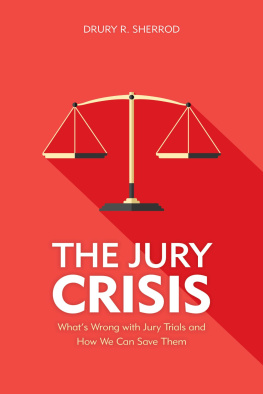

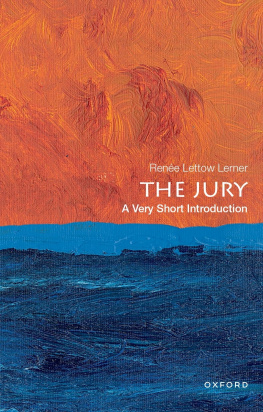
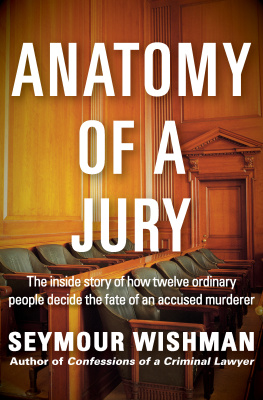
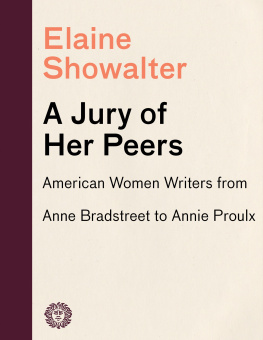
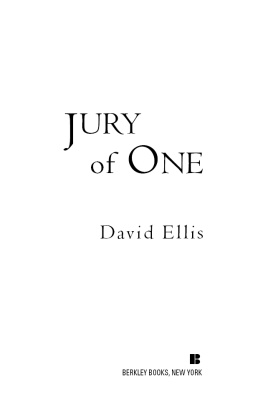
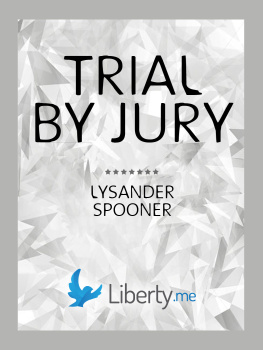
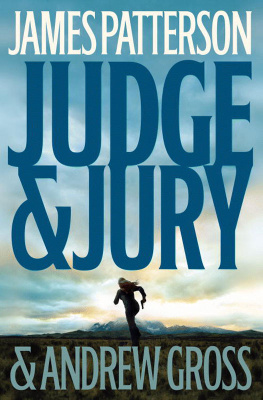

 The paper used in this publication meets the minimum requirements of American National Standard for Information SciencesPermanence of Paper for Printed Library Materials, ANSI/NISO Z39.48-1992.
The paper used in this publication meets the minimum requirements of American National Standard for Information SciencesPermanence of Paper for Printed Library Materials, ANSI/NISO Z39.48-1992.